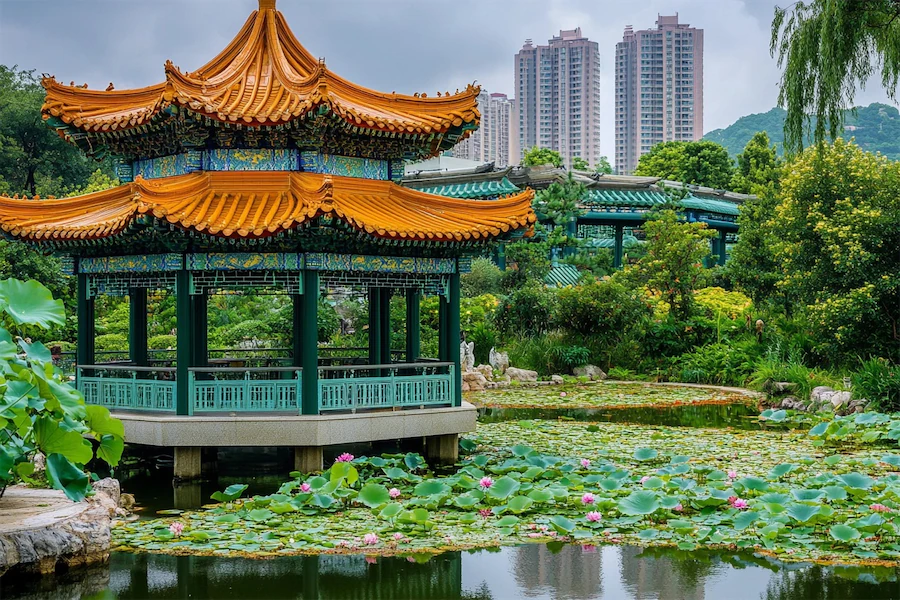A Feng Shui garden is designed to harmonize the natural environment with human habitation, promoting balance, tranquility, and positive energy flow. Rooted in ancient Chinese philosophy, such gardens integrate the five elements—wood, fire, earth, metal, and water—to create a space that nurtures well-being and prosperity.
History and Origins of Feng Shui Gardens
Feng Shui, translating to “wind-water,” is an ancient Chinese discipline dating back thousands of years. Initially, it was employed to identify auspicious locations for dwellings and burial sites, ensuring harmony between human structures and the natural landscape.
Over time, these principles extended to garden design, emphasizing the balance of natural elements to foster positive energy, or “chi.”
Key Features of Feng Shui Gardens
Feng Shui gardens are characterized by several essential features:
- The Five Elements: Incorporating wood, fire, earth, metal, and water elements is fundamental. Each element can be represented through various features, such as plants (wood), lighting or red accessories (fire), soil and ceramics (earth), metal ornaments (metal), and ponds or fountains (water).
- Bagua Map: This tool divides the garden into nine zones, each corresponding to different life aspects like health, wealth, and relationships. Designing each area with appropriate elements enhances the associated life area.
- Smooth Energy Flow: Paths and walkways are designed with gentle curves to allow the free movement of chi, avoiding sharp angles that can disrupt energy flow.
- Balance and Harmony: A harmonious arrangement of plants, water features, rocks, and decorations ensures a balanced representation of the five elements, promoting tranquility and well-being.
Applications of Feng Shui Gardens
Feng Shui principles can be applied to various garden settings:
- Residential Gardens: Homeowners can create serene outdoor spaces that enhance relaxation and family harmony by aligning garden zones with the Bagua map and incorporating the five elements appropriately.
- Urban Green Spaces: City planners can design parks and communal gardens that serve as peaceful retreats from urban stress, fostering community well-being through balanced natural environments.
- Corporate Landscapes: Businesses can utilize Feng Shui gardens to create welcoming environments for employees and clients, potentially enhancing productivity and positive interactions.
Considerations When Designing a Feng Shui Garden
When planning a Feng Shui garden, consider the following:
- Clutter-Free Environment: Maintain cleanliness and order to ensure unobstructed energy flow, as clutter can impede chi and create stagnation.
- Natural Materials: Use natural materials like wood, stone, and plants to strengthen the connection with nature and enhance the garden’s authenticity.
- Proportional Elements: Ensure that garden features are proportionate to the space to maintain balance and prevent overwhelming any single area.
- Personalization: Incorporate elements that resonate personally, such as favorite plants or meaningful symbols, to strengthen the emotional connection to the space.
Conclusion
Designing a Feng Shui garden involves thoughtful integration of natural elements and philosophical principles to create a harmonious outdoor space. By balancing the five elements and considering the Bagua map, such gardens can become sanctuaries that promote peace, prosperity, and well-being for all who experience them.
